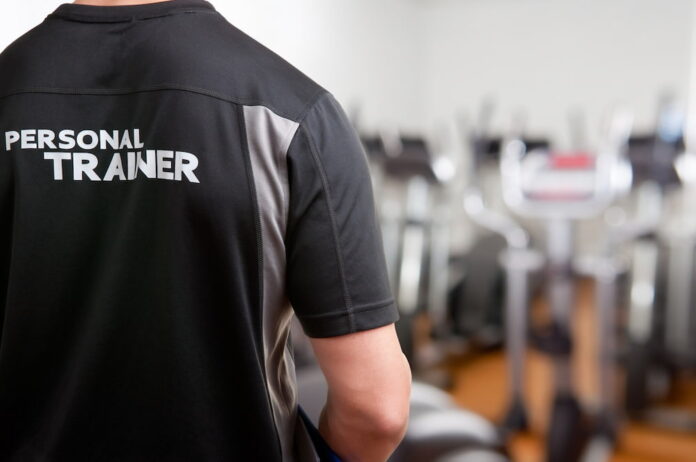We lead sedentary lifestyles and are more prone to being overweight than ever before. Can you help people to get fit and healthy by becoming fitness coaches?
This rewarding and busy career is perfect for those looking to help others. It helps to improve their health and lifestyle. You might have the knack for guiding people through grueling weight loss regimens.
Check out this guide to ensure you’re well-prepared to become a fitness coach. It tells you everything you need to know about the career.
Understand the Role of a Fitness Coach
A fitness coach’s role is multifaceted. They must understand their client’s needs and tailor a fitness experience. It helps them to meet their individual goals. Understanding the importance of proper nutrition and supplementation is also essential.
A fitness coach should stay up-to-date on the latest methods and techniques. It includes using technology to track progress and effectively give feedback. A coach must create a safe, enjoyable, and motivating environment for clients.
Any individual can have a successful and competent fitness career.
Recognize Your Qualifications
Recognizing your qualifications as a fitness instructor is a critical first step. You should identify any relevant skills and involvement in teaching others. It includes how to reach their wellness and health goals.
There are also essential components you need to know to become a fitness instructor, such as:
– human anatomy
– exercise physiology
– nutrition
– kinesiology
– biomechanics
Think about your strengths and how you can best use them to help others reach their fitness goals. Take advantage of any available support and education. It enables you to become a more successful coach.
Obtaining Necessary Certifications
Depending on the type of activities and certification, there are many requirements for certification programs. Make sure you apply for certified programs that are accredited.
You may pursue standard certifications in strength and conditioning. It includes sport-specific training, nutrition, personal training, sports sciences, and more.
Consider what types of activity you want to lead. Research adequate personal trainer and fitness certifications and programs. Also, get the necessary credentials to help you pursue your career goals.
Stay updated with the latest research, methods, and trends in the fitness field.
Gain Valuable Experience
Internships or shadowing experienced fitness coaches can provide beneficial insight into the profession. This can include going to gyms and observing different fitness instructors.
Consider your experience as an athlete, personal trainer, coach, or in any other area that’s related to health and wellness. Working as a personal trainer or class instructor is a way to gain extensive experience.
Working with people of various body types and fitness levels will present different scenarios. Thereby giving them a chance to strengthen their skills.
Finally, receiving proper education or specialized training courses can provide an added edge.
Do You Have What It Takes to Become a Fitness Coach?
To summarize, fitness coaching is about supporting and motivating your clients. It helps them to transform their physical health. It also inspires them to improve their emotional and social well-being.
Fitness classes must understand fitness, nutrition, motivation, and communication skills. If you’re inspired to become one, start by gathering the necessary education, certifications, and experience.
Finally, remember to build a strong network and always continue learning! Get started on your journey today!
Visit the rest of our posts often for more advice on enjoying health, fitness and more.
Read Also
- The Role of Ingredients in Your Skincare: What to Look ForSkincare works best when you understand what goes into the products you use daily. Ingredients form the foundation of every formula and determine how the skin reacts over time. Each cream, cleanser, or serum has its own role, determined by its ingredients. Learning what to look for helps you pick products that help skin and… Read more: The Role of Ingredients in Your Skincare: What to Look For
- Your Guide to Finding a Trusted DentistChoosing the right dentist in Sandgate or your area is crucial for maintaining good oral health and achieving a confident smile. With countless dental practices to choose from, patients may find the task daunting. Data from the American Dental Association indicates that there are over 200,000 practicing dentists in the United States, highlighting the importance… Read more: Your Guide to Finding a Trusted Dentist
- Achieving a Defined, Balanced Facial Contour in SingaporeA well-defined jawline and a gently tapered lower face — commonly referred to as a V-shaped face — is a look many people aspire to. In Singapore’s beauty and aesthetic scene, treatments that help refine facial contours have grown in popularity as more individuals seek subtle, natural enhancements that boost confidence and balance facial features.… Read more: Achieving a Defined, Balanced Facial Contour in Singapore
- The Wellness Blueprint: How Your DNA Holds the AnswerGenetic testing is revolutionizing preventive healthcare by offering insights into individual health risks. By analyzing DNA, these tests provide a personalized health blueprint that can guide lifestyle and medical decisions. This approach, often referred to as DNA wellness testing, helps to optimize health naturally and prevent potential diseases. In recent years, genetic testing has become… Read more: The Wellness Blueprint: How Your DNA Holds the Answer
- Exploring the Benefits of Infusion Therapy in OKC: The Ultimate GuideUnderstanding Infusion Therapy: A Deep Dive into Its Purpose and Process What exactly is Infusion Therapy? Infusion therapy is an advanced medical treatment that delivers medication and nutrients directly into the bloodstream through a vein, typically via an IV (intravenous) line. This method is particularly beneficial for patients who require a concentrated dose of medication,… Read more: Exploring the Benefits of Infusion Therapy in OKC: The Ultimate Guide






